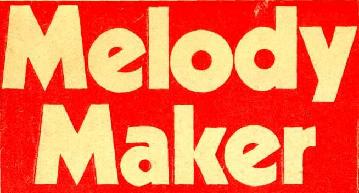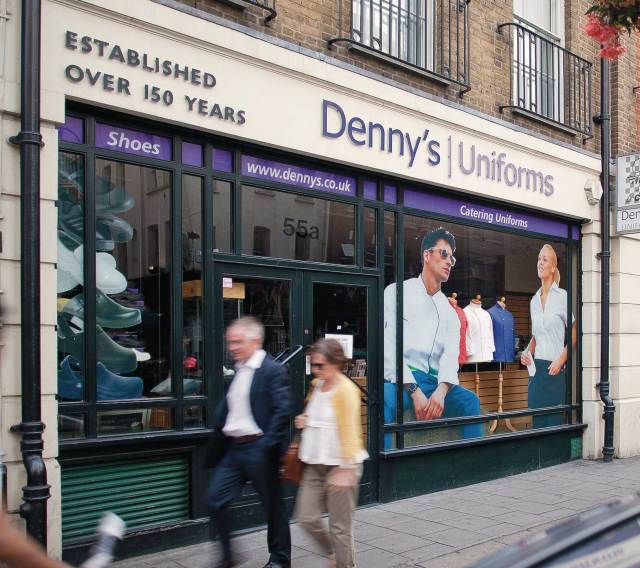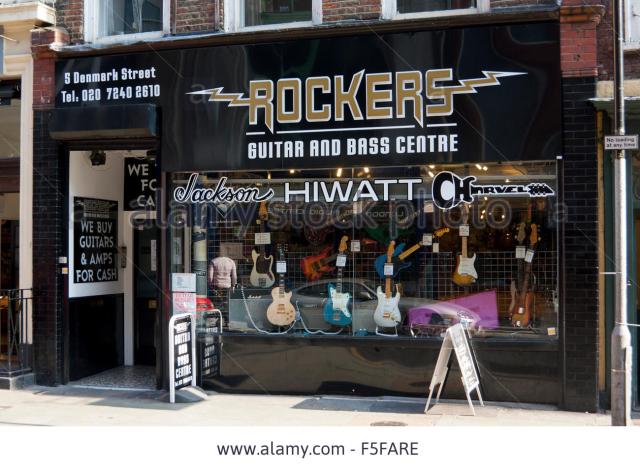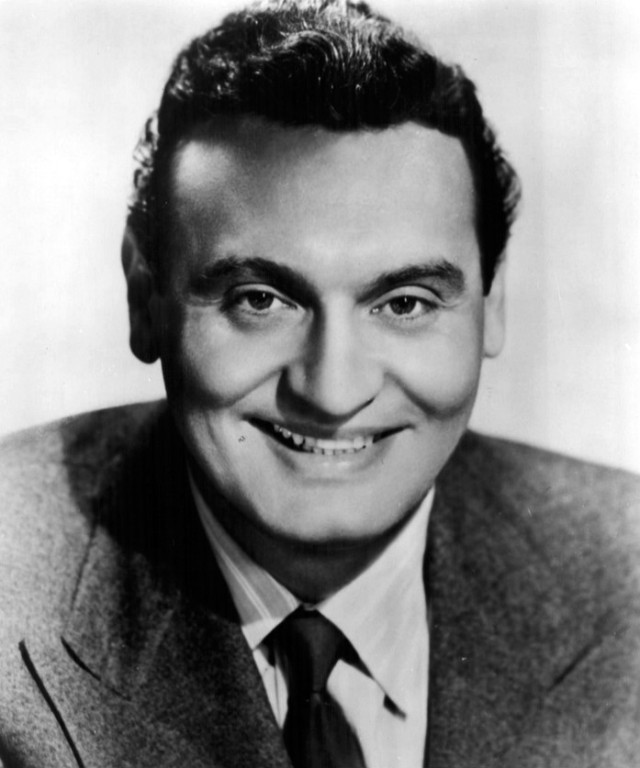Percy Dickins, father of Barry and Rob, worked all his life in newspaper publishing – I think that’s all I need to say by way of introduction. His comments and observations say everything, though I fear his memory for dates played a few tricks. I can find no photographs of him, though when I visited him not long before he died in 2002, aged 80, he made a point of showing me loads of pictures which I hope remain in the family. This short conversation may be the only interview he ever did.

I worked at Odhams Press from the age of 14 right up to the beginning of the war. I was a messenger boy first at 57-59 Longacre (now Giorgio Armani) There were about ten office boys in the advertising side and we used to take proofs out to agencies to the them OK’d..delivering and picking up stuff and gradually as people got promoted you got to the post desk, the top job on the ground floor for the boys. I stayed there until the beginning of the war when everybody was sacked. After three weeks I got a letter from the office manager to say there would be a job for me if I’d like to go back now, but they didn’t know how long for. So I went back and time went on and I thought I’d get called up. I’d always wanted to go away to sea. I lived in East Ham in those days, right near Docklands and I was always down there. The Mauritania used to come in and we’d watch it; a lot of my pals from that area did go away to sea. There was a recruitment centre down at Whitehall for the Navy so a pal and I went down there and said we’d like to join. We were asked what we wanted to do – in those days I could do a bit of shorthand and typing (Odhams had made us go to evening classes to learn it).

After the war, the firm you were previously in had to take you back. The only job they had going was with Melody Maker as a rep. Paper was short at that time and it was no good trying to sell advertising space because there was no room in the paper. It was all taken up with the regular features. Gradually as things got better we got a few more pages. The paper was largely concerned with big bands at that time. Record Mirror was the only other music paper around, (it was actually founded in 1954 by Isidore Green, two years after the New Musical Express), run by Julian Veedy (I can find nothing to verify this). He was an actor doing comedy stuff but he had an active brain and he started Record Mirror – he was giving advertising space for next to nothing. The music business in those days was mainly selling saxophones, trombones and trumpets. There was a band leader who had a shop called BMG (banjo, mandolin and guitar) up at Seven Dials and he had a magazine. Then there was a magazine called Rhythm, printed on glossy paper. Before the war I played saxophone in a band called Paul Dixon & His Music.(Percy Dickins didn’t sound too good!) I got a gig at a cinema in Canning Town. In between the main features you got variety acts. The manager said he’d give us a try but he’d have his organist standing by and we were no bloody good he’d bring the organist up. There’s a shop in Soho called Denny’s that sells catering uniforms and we all bought waiter’s waistcoats for the gig and a pal of mine who was a professional tap dancer lent us his make-up and we all put on this stage make-up.

The advertising manager at Melody Maker was a fellow called Freddy Palmer, well-known in the publishing fraternity and he took me out and introduced me to publishers. Gradually it picked up and as we got more paper, I had space to sell. One of my favourite customers was Berg Larsen who were well known making mouthpieces, and Harry Hayes.
In the publishing offices they all had guys doing gigs; they nearly all played something or other, so you built up a nice camaraderie of punters. Everybody was a musician.
Melody Maker was doing very well, but I felt I wasn’t getting anywhere. There was a magazine called Fanfare, cost about one shilling (5p). Jack Baverstock owned it. I got to know him and one day he asked me if I’d be interested in starting up another newspaper. He said there was a guy who owned a printing press who wanted me to be on the staff of a new music paper – apparently he wanted me so much that he said if he didn’t get me then he wouldn’t start the paper. He also needed an editor and as Ray Sonin had retired from Melody Maker to devote his time to writing (he and another journalist used to write ‘Life with the Lyons’ (actually, it was ‘Hi Gang’ which came earlier during WW2) and he’d written a couple of detective novels. I contacted Jack and said I’d take the job if Ray was editor. Ray became editor, Jack was assistant editor and I was advertising manager. (The paper was called Musical and Accordion Express)

Ray Sonin (left)
Did they say how it would be different from Melody Maker?
They said they were going to take some of the more popular stagey stuff. Everybody said we’d last five minutes. The target was £100 worth of advertising a week and I did it. I’d built up contacts and some weeks I did more than that. Our offices were at 5 Denmark Street – we had the ground and first floor and later the top floor as well. On the first floor was also Cyril Shane the plugger for Mills Music and Joe ‘Mr Piano’ Henderson also had an office in there.

5 Denmark Street as it is today-ish!
It didn’t do too well to start with?
The printers were giving us a cheap rate. Our circulation was going up but then we heard that the papers were getting to the stations to be taken round the country but they were missing trains and arriving late. It turned out the printers were doing rush jobs for the Daily Express. The owner’s father who was a very wealthy builder came in one day and said ‘I’m shutting the paper’. We said ‘give us a week, you can’t shut it now.’ He gave us a week. There was Ray Sonin, Jack Baverstock, Les Perrin and myself and we thought ‘who do we know who could help us?’ In the end Les Perrin brought in Maurice Kinn, who for a long time was Joe Loss’s business partner and was an agent for Cyril Stapleton and other bands. We weren’t very happy about it but it was that or go under. Maurice bought it for £1000 and renamed it New Musical Express.

Maurice Kinn (left) with Billy Daniels, and I’ll let someone else identify the lady!
Maurice put a lot into it. He let someone else take over his agency. He thought of the idea of sending out free copies to show people what it was like. He had his mum and dad in one of the rooms sending them out. He put new life into it and it started to look better; he spent money by advertising on Radio Luxembourg and that did it; it no time at all we had reached a circulation of 150,000 – we’d never dreamed of selling that many. The owner of Variety (a weekly American paper) asked me to pop in one day. I went for a coffee and he asked me if I was interested in a job for twice the money I was getting, but I said ‘no’. Then he showed me a telegram from the owner which said ‘Get Percy Dickins at any cost. He’s a live wire.’ I said ‘I’m not going’. They weren’t very pleased
Can you remember how you created the singles chart?
We used to run a scheme for the PRS (Performing Rights Society) Showing the best-selling sheet music. Looking through Variety they had all these records and I said to Ray ‘this would be a good idea, to have the best-selling records’ and he said ‘good idea, you set it up.’ I said to Jack ‘If we’ve got all these records (reviewed) here, we can ask for ads to go with them. There are more records coming out ow’ and we gradually went that way. The paper’s going well, we’re being printed on a rotary press; it’s getting very popular and we are the paper. When we got the record chart going as well it was fantastic. We got more publicity from it. We used to send out printed leaflets and the shops would fill them in (with the week’s best-selling singles)
I was the first person to start awards, in the sixties. Everyone’s doing awards now. One day the news vendor outside Tottenham Court Road tube station came into our office and said ‘Here Percy, you got any more papers?’ And he’d sold out. I couldn’t understand it; he pointed at the front page and said ‘this is what’s doing it’ and it was a full picture of Frankie Laine. Everyone was buying. Out readers told us what they wanted.

We used to have an awards ceremony either at The Savoy or the Grosvenor. We got coverage. I started that. Maurice used to go to America a lot and he’d phone back and say ‘See if you can get these Beatles for the concert.’ I knew Brian (Epstein) because was always phoning me to find out the chart positions.

I met Maurice Kinn on various occasions after he had retired and wanted EMI to commission him to compile CD’s. I had heard that he always kept a copy of the programme above in his jacket pocket as it was the only time that The Beatles and Rolling Stones ever appeared on the same bill and it was obviously the highlight of his career. I witnessed this once when I sat next to him at a lunch we had arranged to mark Russ Conway’s 70th birthday.
When did you retire?
I left in 1982. Maurice sold it in 1963 to IPC, or George Newnes as it was known before. It wasn’t a shock, but I knew six months before anyone else. He regretted it. It was his life. Everyone thought I got a perecentage when it was sold, but I got nothing. And I started it!
I wasn’t very happy (with the 1963 sale) and didn’t like the set up for money. I was made a director of NMEplc but they didn’t give me any more money and they wouldn’t give me a car. They also stopped the Christmas Annuals which I earned commission on. I told them I was going to leave and I was then offered more money or a car. I took the money. I haven’t seen NME since I left.
Was it inevitable that your boys went into the music business?
No. Barry had a nice little job in a stockbrokers, going to evening classes, we were ever so pleased.
So, short and sweet, Percy Dickins My wife’s transcription of this conversation makes several references to Percy’s photograph collection which obviously gave him a great deal of pleasure and presumably featured him as well.
As with all these interview transcripts, I encourage you to add your comments, memories, photographs to enhance the stories of these often unsung heroes. If you do, PLEASE do it via the Word Press site rather than, or as well as, Facebook, so they can be preserved in the right place.
Next time…….Ken East.
©David Hughes, 2015. Photographs from Google and for illustrative purposes only.

Another worthy interview with an important unsung player – top marks as usual, David, and thanks for reviving this important series.
Percy can only have been referring to Julien Vedey, whose Venture Publications Ltd owned the Musical Express in its earliest years. He was the paper’s managing editor and a Miss Georgie Vedey – his daughter? – was an early editor, the only woman to edit a British music weekly until the 21st century.
The Beatles and the Stones played on the same bill before any NME poll-winners’ concert – it first happened at one of the annual Great Pop Prom shows, at the Royal Albert Hall in September 1963.
LikeLike
Thanks as always, Mark. At least my comment about Percy’s memory of dates was correct, except that he was presumably thinking of Musical Express! As for The Beatles and The Stones – at least Maurice went to his grave under the illusion that his Awards show was the only time they’d appeared together.
LikeLike
Pingback: A Personal History of the British Record Industry 23 – Percy Dickins | vinylmemories
The lady in the photograph with Billy Daniels is Maurice Kinn’s wife Berenice
LikeLike